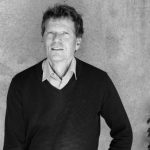Date/Time
Date(s) - March 1, 2024 - March 2, 2024
7:00 pm - 2:00 pm
Location
Epiphany Chapel, Vancouver School of Theology
Categories No Categories
Friday, March 1st at 7pm
Public Lecture: ‘Give us a hearing heart’. The Listening Society and Its Enemies (In-Person & Online)
Saturday, March 2nd, 10am – 2pm
Public Workshop: Democracy Needs Religion: On a Peculiar but Resonant Relationship (In-Person only)
Location:
Epiphany Chapel
6030 Chancellor Blvd, Vancouver
VST is pleased to announce sociologist and political scientist Dr. Hartmut Rosa as the 2024 G. Peter Kaye Lecturer.
Hartmut Rosa (Ph.D., Humboldt University of Berlin) is the Professor of General and Theoretical Sociology at Freidrich-Schiller University in Jena and the Director of the Max Weber Centre for Advanced Cultural and Social Studies at Erfurt University.

Prof. Rosa studied political science, philosophy, and German studies at the University of Freiburg, graduating with honours in 1993. Four years later he graduated summa cum laude from the Humboldt University of Berlin after writing his Ph.D. dissertation on political philosophy according to Charles Taylor. He has held teaching and research positions internationally, including at the universities of Mannheimm, Essen, Augsburg, the FMSH/EHESS in Paris, Harvard, and the New School University in New York. Prof. Rosa has served on numerous boards and councils, including his current position on the board of the Martin Buber Society of Fellows at the University of Jerusalem.
Prof. Rosa’s research interests include Resonance-Theory, normative and empirical foundations of critical social theory, political and philosophical communitarianism and civil society, and temporal sociology of social acceleration. His books have been translated into 15 languages and he has won a plethora of awards for his work, including the Tractatus Award for Philosophical Essays. His most recent book is a co-publication with Andreas Reckwitz: Late Modernity in Crisis: Why We Need a Theory of Society (2023).
Abstract:
The predominant modern way of being and acting in the world leads almost inevitably to political, ecological, and psychological disaster. The necessity of incessant growth, acceleration, and innovation that our current mode of being insists upon is a kind of deafness and muteness—an aggressive way of being oriented towards control.
But this cannot be all there is. A resonant mode of being takes its cue from music: listening and responding. Such a mode of being is developed in theological theories and embodied in religious rituals and practices. However, religious dogmas can easily flip course and become resonance killers.
The challenge we face is to work out and divide the dividing lines in this Janus Face of Religion.
